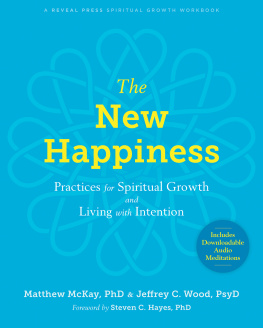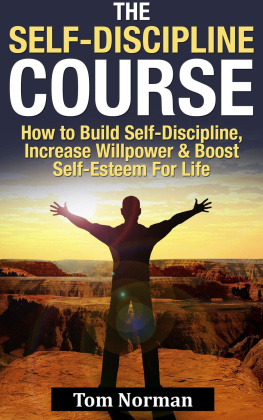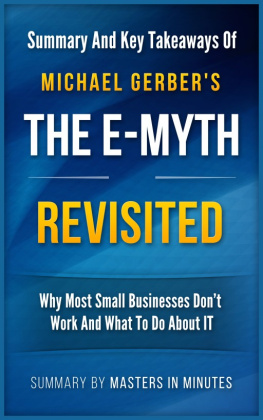Introduction
By reading this summary, you will discover the impact of our negative thoughts on our lives, as well as the six practices to adopt in order to nourish and develop self-confidence.
You will also learn that :
self-acceptance and self-control are necessary factors in our evolution;
we are the only ones responsible for our life and our happiness: our choices and their realization are entirely up to us;
it is essential to assert one's personality and one's right to exist, to take one's place in the world, to create one's vital space and not to be afraid to speak or act according to our deepest values;
to find meaning in our life, we must focus it on a goal to be identified and identify the steps to achieve it;
we must show personal integrity to create harmony between what we say and what we do, to be authentic to ourselves and to others.
These days, everything goes too fast. Society asks us to be efficient, productive and self-confident in an ever-changing world, which is often a threat to our inner balance. We then come to doubt ourselves by experiencing feelings of guilt, shame, inadequacy, inferiority. How can we find our place in an environment that is beyond us? You will be able to benefit from the advice of Nathaniel Branden, a renowned psychologist in the United States. In his work, he insists on the importance of self-esteem, willpower and personal choices to lead a life that truly corresponds to us.
Our mind influences our level of self-esteem and each of our actions
Self-confidence encompasses two inseparable components: a sense of self-efficacy (belief in one's abilities to achieve the desired result) and self-respect (belief that one deserves to be happy). The equation is both simple and complex: self-confidence is determined by everything we think we are capable of and everything we think we are worthy of. Our potential and our right to happiness, in short.
These two feelings are strongly tempered by the vision we have of ourselves (itself influenced by our family schema, our experiences, our surroundings, etc.). Since childhood, we construct personal beliefs that are in truth only interpretations of what we have observed around us. For example, if a woman grew up with a distant father, she may have been convinced since childhood that she is not worthy of his love and, more generally, of the love of men.
These beliefs, which we have built on the emotional wounds of our past and which we consider justified, prevent us from being the person we would like to be and limit our personal evolution. As a result, we are not faithful to our inner being and its needs. We lie to ourselves by hiding the wounds that we do not have the courage to heal because they are too painful. Without even realizing it, we allow ourselves to be blinded by our beliefs that imprison us in a spiral of negativity and self-denial.
In reality, we are not victims of fate or of others as we like to believe, but we unconsciously sabotage ourselves. If we convince ourselves that we are "useless", we will act under the influence of this thought and cause ourselves to fail in our lives, which will fuel our lack of self-confidence. This is a vicious circle from which we must break in order to achieve happiness. To have self-confidence, we must be convinced that we deserve to be happy. It is not enough to think it, but to feel it deep inside. Only if we truly believe it will we feed ourselves with the energy to act accordingly and control our lives.
How do we do this? This is what we will learn in the next parts through the analysis of the six practices allowing a healthy self-esteem.
The practice of conscious living leads us to take a step back from what surrounds us and the negative image we have of ourselves.
Consciousness is the instrument that allows us to survive, to have some discernment about what is right or wrong, dangerous for us or not. It encourages us to respect the facts, to be present at what we are doing, to be curious and open to what surrounds us. We all have the choice to develop our consciousness or not. When we refuse to do so, it means that we are afraid of being confronted with a reality that disturbs us.
Every time we encounter a difficulty, we hide from ourselves by convincing ourselves that we are in control of the situation, that others are to blame for our discomfort or that things will work themselves out (ostrich technique). We refuse to assume our responsibilities and always find excuses for not having to face the problems that cross our path. This passivity deteriorates the image we have of ourselves, without us being aware of it.
Until we identify what is problematic and what is in our power, we will be unable to improve our level of confidence. Being aware means taking responsibility and making choices. It is by regaining control of our lives that we will be able to choose the most appropriate method to satisfy our values and needs.
To increase your level of awareness, you need to :
- be active in pushing yourself to make choices and take responsibility;
- keep the pleasure of learning and not be afraid of new knowledge: it is there to enrich what we have learned;
- be in the present moment: let's not brood over our regrets or our fear of the future, we will be all the more serene and efficient;
- to be anchored in the truth by banishing any personal interpretation: we must remain objective in all circumstances so as not to have a distorted vision of the facts;
- accept reality and the negative feelings it can engender: we must assume what we are 100%;
- regularly take stock of one's life in order to know where we are in relation to the achievement of our objectives and, if necessary, improve our actions to achieve what we are looking for;
- know how to act according to our environment: by being aware of the fluctuations and rules of the system in which we live, we will feel more fulfilled and we will be ready to master each unexpected situation;
- admit our mistakes and accept to question ourselves: we should not be ashamed to make mistakes, error is human and is even necessary for us to evolve;
- listen to our body and emotions in order to move towards what is good for us.
The practice of self-acceptance requires an objective vision of ourselves.
To develop our level of trust and acceptance, we must first connect with ourselves and discover who we really are. But to do this, we need to have a clear and objective image of ourselves, free of personal interpretation and interference from the past.
How does self-acceptance translate? It includes three characteristics:
- in the first meaning of the term, to accept oneself is to be conscious of its value and to act consequently. It is about respecting oneself and asserting one's rights as a human being;
- on a second level, self-acceptance represents the need to be whole, faithful to oneself and to express oneself in order to feel alive. We then assume our actions and our emotions, without feeling guilty or afraid of the gaze of others. We accept both the positive and the negative in ourselves. It can happen that we are not proud of ourselves, but we accept this by facing reality and being aware of our mistakes;
- finally, accepting ourselves implies being benevolent and showing compassion towards ourselves. When we have committed an act that we regret, it is important to ask ourselves why we did it in order to understand what our motives were. We don't need to judge ourselves despite the fact that we are disappointed in ourselves. The important thing is to understand our mistakes to avoid repeating them.
Positive affirmations are an ideal technique for countering and reversing our personal beliefs. By dint of repeating them every day, they become anchored in our minds and become established as truths (Cou method). For example, naked in front of a mirror, repeat aloud: I love and accept myself as I am, while focusing on your reflection. By doing this exercise morning and evening for 15 days, you will already observe a clear improvement in your state of mind.









